The new Taycan EV is one of the fastest-accelerating Porsches of all time
Taycan Turbo S can smash 0-62mph in just 2.4 seconds
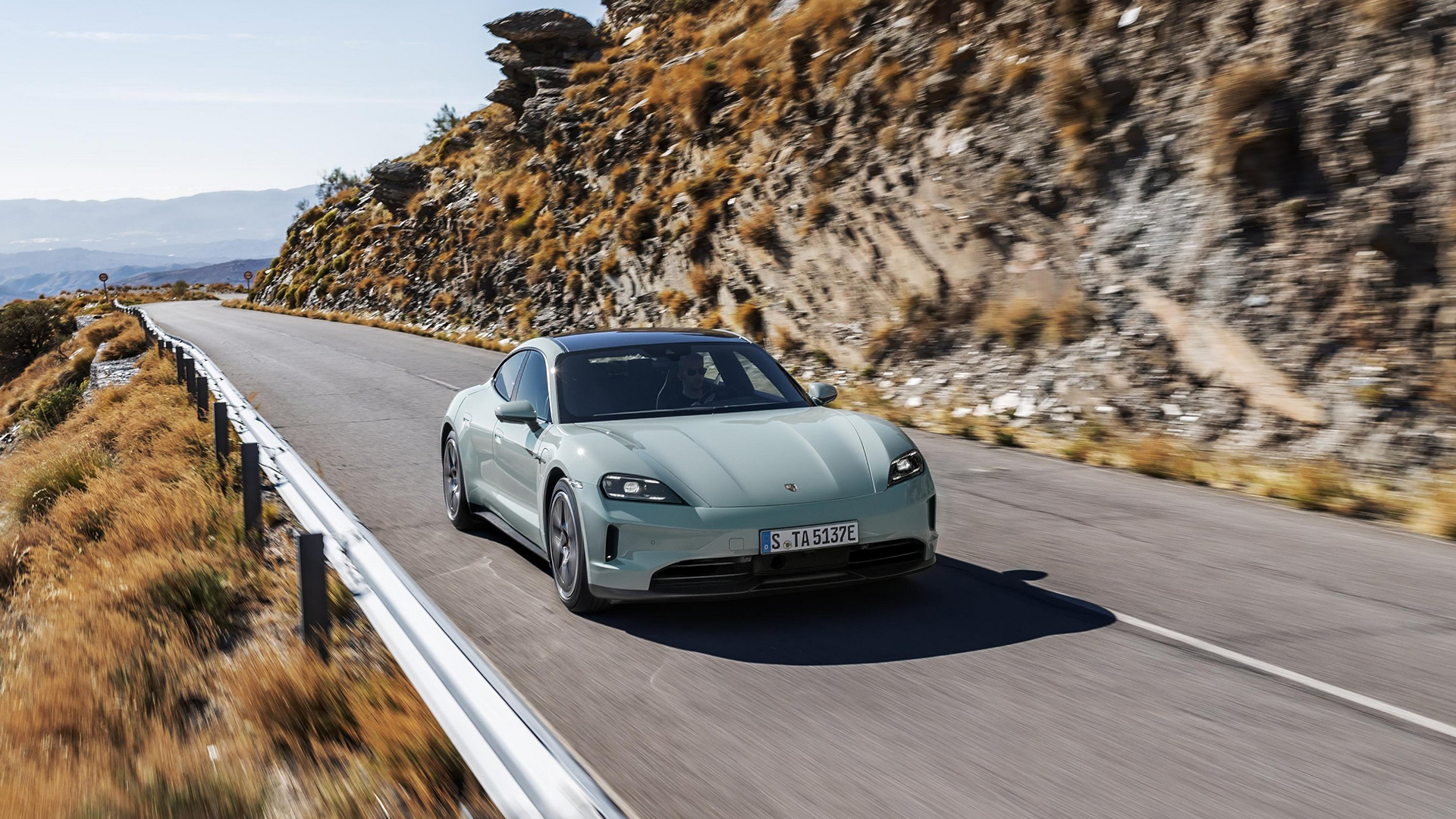
Hot on the heels of the Macan EV launch, Porsche has taken the wraps off its heavily updated Taycan model, which now offers an increased all-electric range of up to 421 miles in certain model variants and the ability to sprint from 0-62mph in a staggering 2.4 seconds.
Granted, those neck-snapping acceleration figures are only available in the most powerful (and most expensive) Taycan Turbo S models, but they put Porsche's 918 Spyder to shame. That model that was once considered part of the 'holy trinity' of high performance next-gen hypercars that included the Ferrari LaFerrari and McLaren P1.
Owners of the range-topping Taycan Turbo S model get access to a total power output of 700kW (or 952hp) although this is only available when using the launch control functionality. Drivers also get a 'push-to-pass function' button, which unleashes an additional 70kW (94hp) for ten seconds to assist with overtaking maneuvers. Bottom line, it's stupidly fast whatever way you cut it.
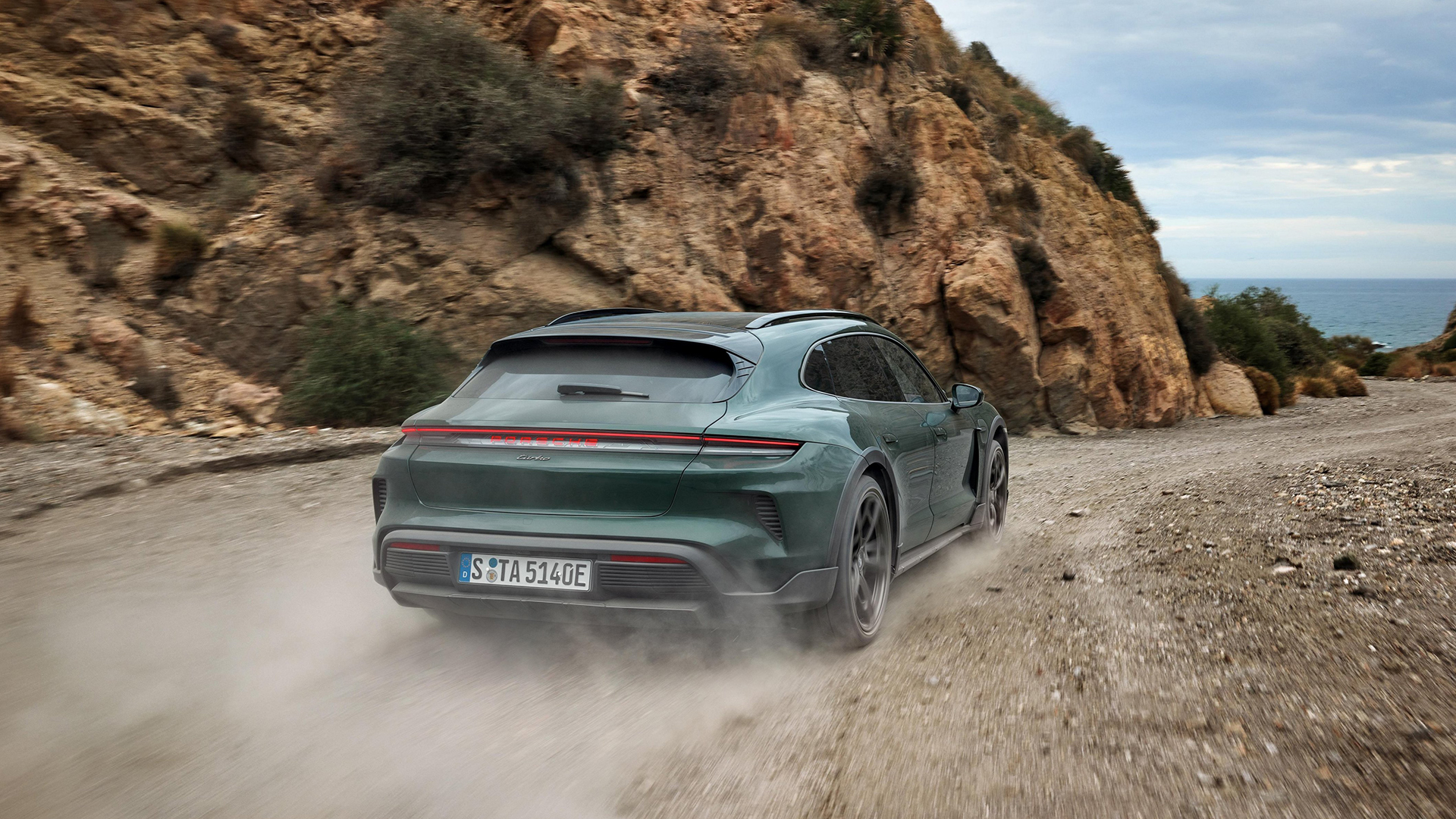
But behind the insane performance metrics still remains a very useable and family-friendly electric saloon. One that can now travel for up to 421-miles on a single charge in the Turbo and Turbo S variants, thanks to a larger 105kWh battery pack (97kWh is useable).
Amazingly, despite the increases in performance and electric range, the new Taycan has managed to shed some weight, with overall mass falling by 15kg thanks to lighter battery pack construction and tweaks to second-gen electric motor technology.
Porsche says maximum energy recuperation during deceleration has increased by more than 30 per cent from 290 kW to up to 400 kW, while fast-charging capacity has also been boosted by 50 kW to up to 320 kW, meaning charging sessions have been significantly reduced when using the appropriate outlet.
What’s more, the fast-charging window of the new performance battery pack has been expanded. In essence, this means that charging capacities of more than 300 kW can be sustained for longer periods (up to five minutes), allowing the highest possible charging powers to run for longer and therefore squeeze more juice into the packs in a shorter space of time.
Sign up for breaking news, reviews, opinion, top tech deals, and more.
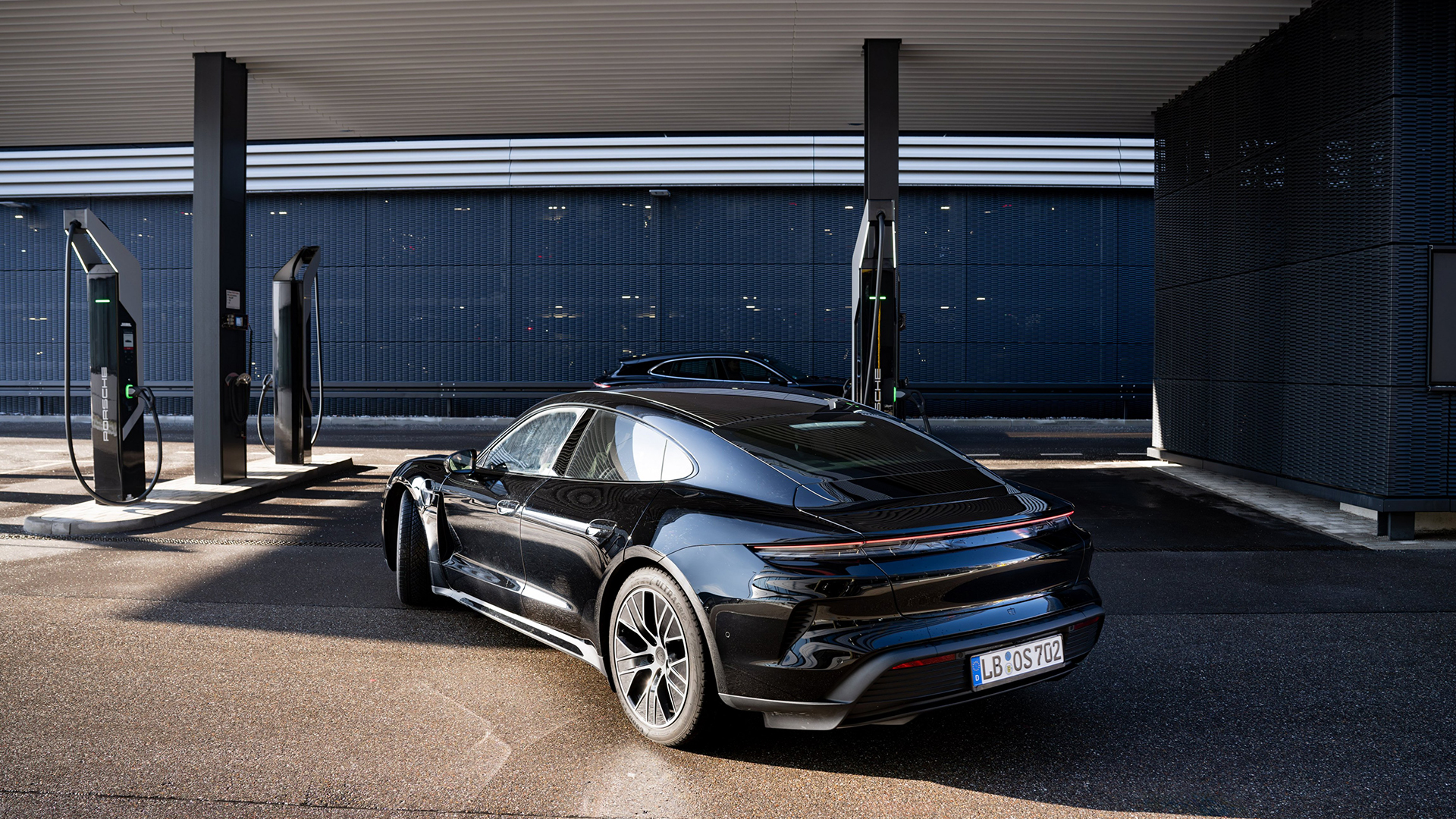
Should all of the parameters be perfect (suitably fast charger, ambient outdoor temperatures favorable), second generation Taycan customers can achieve a 10 to 80 per cent charge in 18 minutes, as opposed to the 37 minutes of its predecessor.
In addition to the further/faster approach, Porsche has also fitted the new Taycan with adaptive air suspension for a smoother ride and more dynamic driving experience when getting happy with the right foot.
As with the previous generation, the new Taycan will be offered in a Cross Turismo and Sport Turismo estate body style, with the range spanning a standard real-wheel-drive model, an all-wheel-drive 4S, Turbo and Turbo S variants across all body styles. This model derivative dictates performance and range, as well as trim specification.
Porsche has also tweaked the exterior styling slightly so it is now sharper, with greater differentiation between standard and Turbo models thanks to bespoke bumpers and badging.
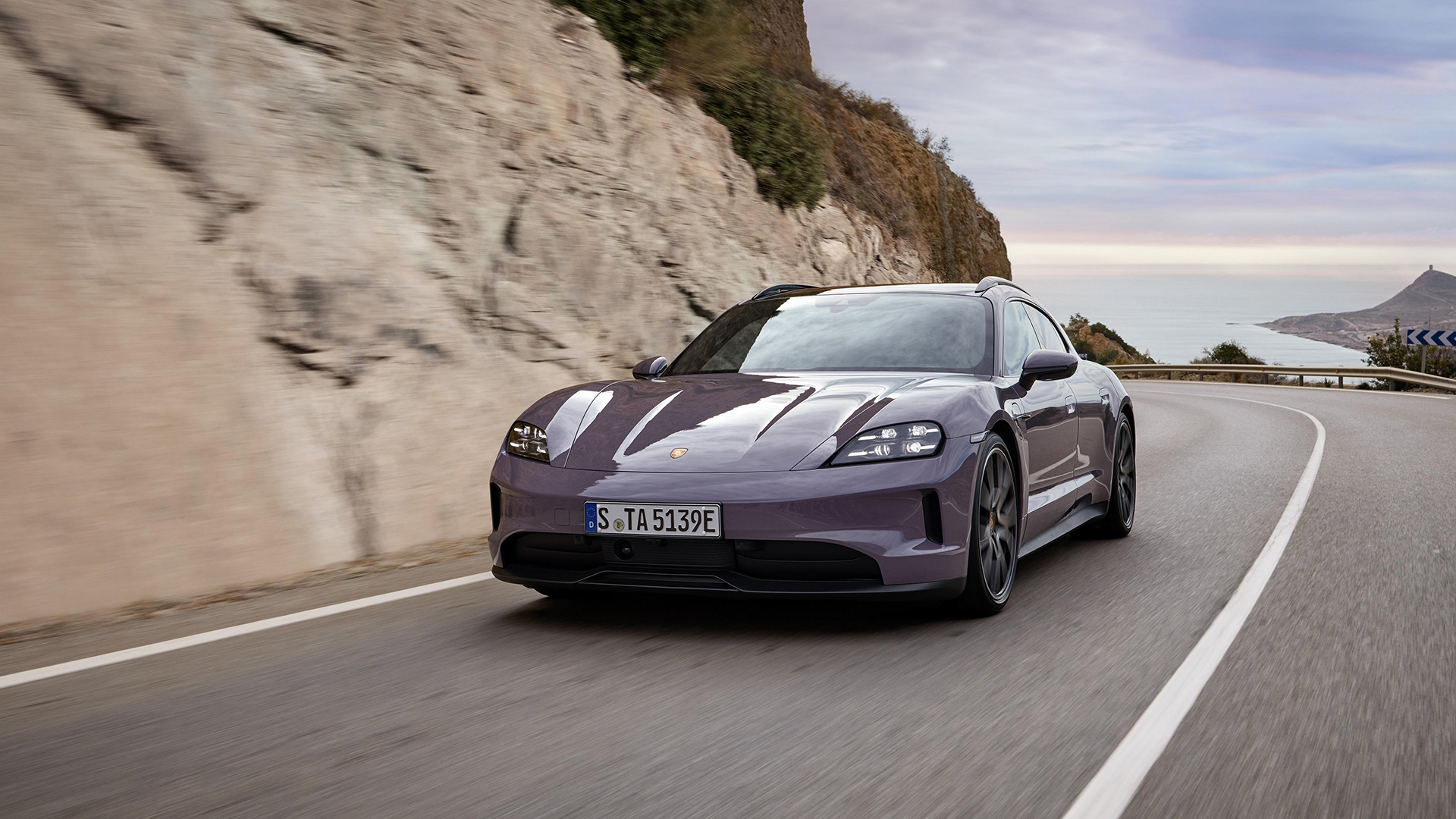
The updated model also ushers in Porsche's promise of deeper Apple CarPlay integration, with much of the vehicle’s functionality able to be accessed from within the CarPlay ecosystem.
What’s more, a new In-Car Video function enables video streaming on the central display when parked and on the passenger display at any time. This is thanks to a special coating that means the driver can’t see what is being displayed from the driver’s seat.
Predictably, the Porsche Taycan isn’t going to be cheap, with the entry-level model costing £86,500 (around $109,000 / AUS$168,000) and the range-topping Taycan Turbo S costing £161,400 (around $204,000 / AUS$313,000).
A recipe for residual headaches?
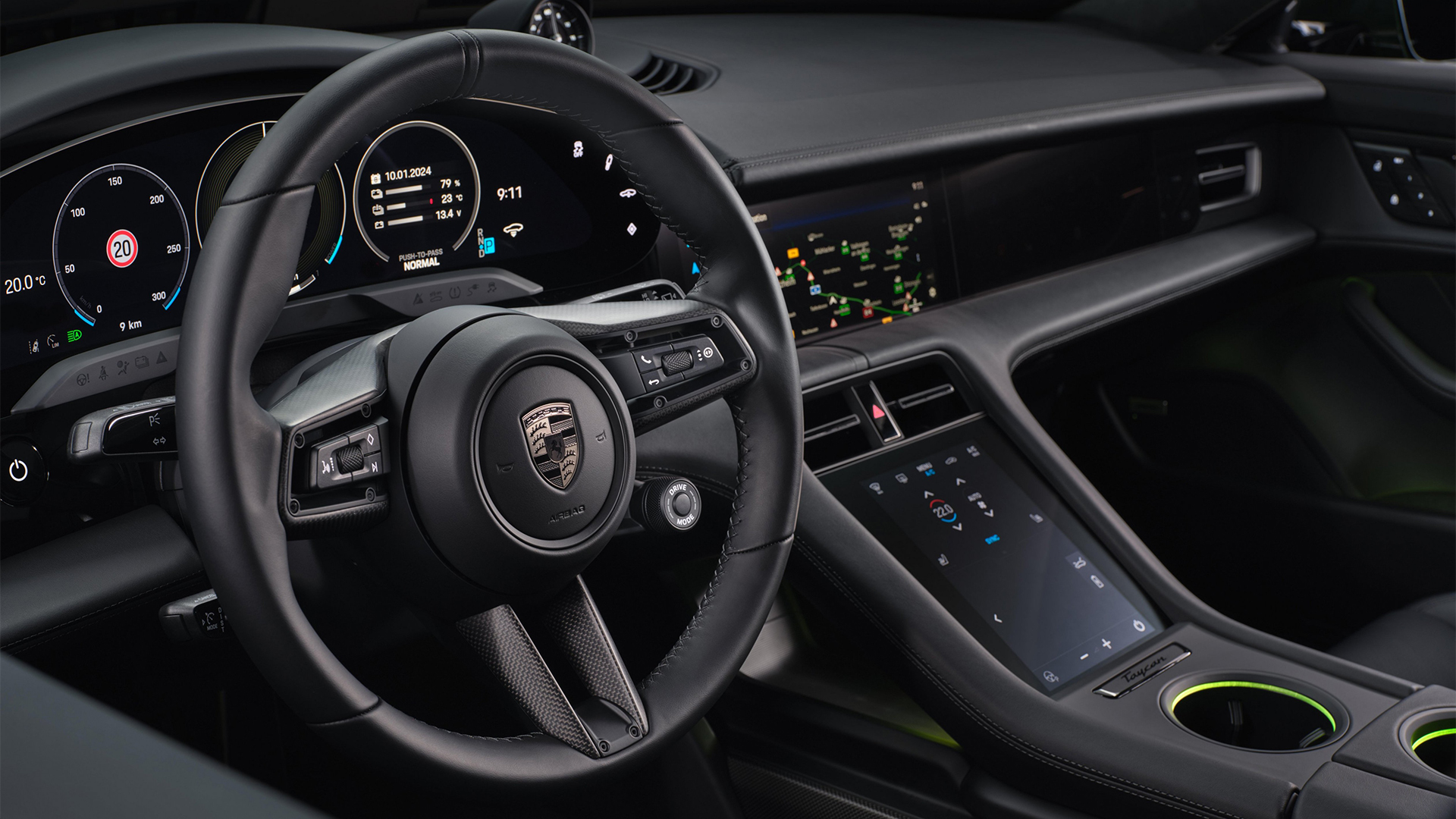
Demand outstripped supply for the first generation Porsche Taycan, pushing even used prices up. But the market has settled since then and now the original model can be picked up on the used market with substantial savings.
In fact, we found low mileage used models for less than £50,000 (around $63,000 / AUS$97,000) during a quick search on one of the UK’s biggest second-hand car sales sites.
That’s more than half the asking price of the 2020 vehicle, especially considering one such cherished example featured £37,000 (around $46,000 / AUS$72,000) worth of optional extras.
This is great news for the used car buyer, but it clearly shows that the market is still very wary of the premium electric vehicle. Those parting with full price for the second generation Taycan Turbo S might very well find its value plummets after just a few years, despite its mammoth performance credentials and that's a problem.
You might also like

Leon has been navigating a world where automotive and tech collide for almost 20 years, reporting on everything from in-car entertainment to robotised manufacturing plants. Currently, EVs are the focus of his attentions, but give it a few years and it will be electric vertical take-off and landing craft. Outside of work hours, he can be found tinkering with distinctly analogue motorcycles, because electric motors are no replacement for an old Honda inline four.